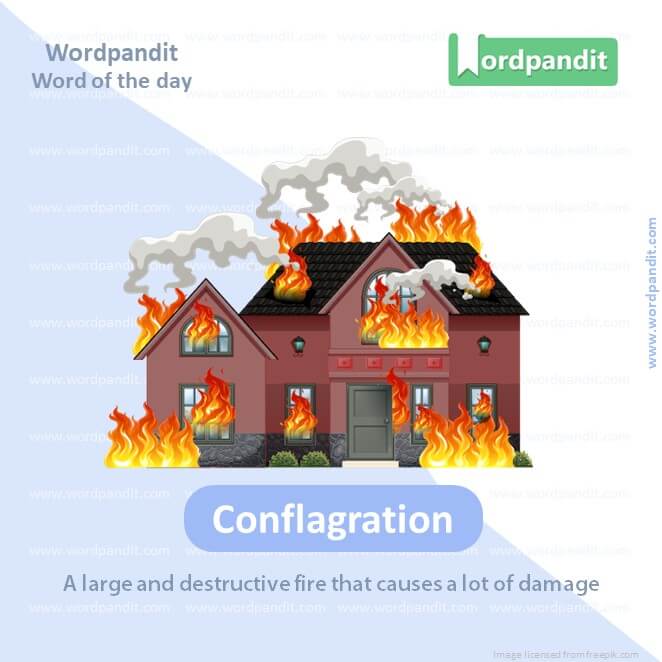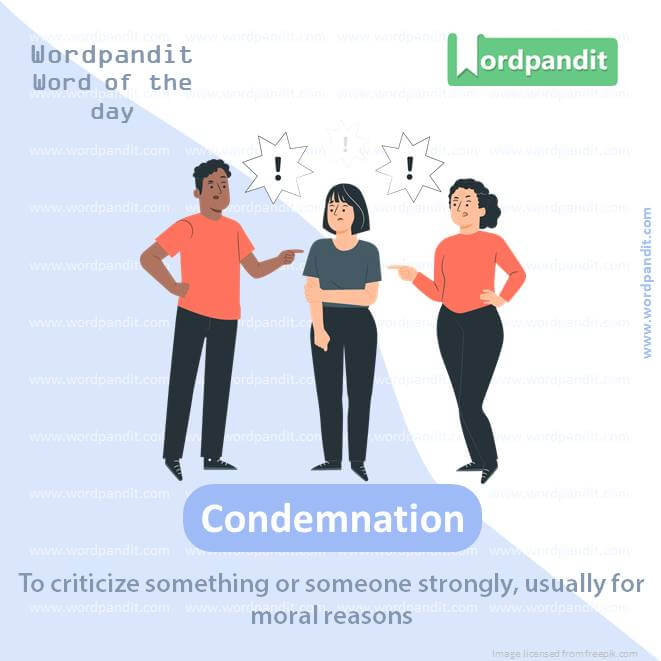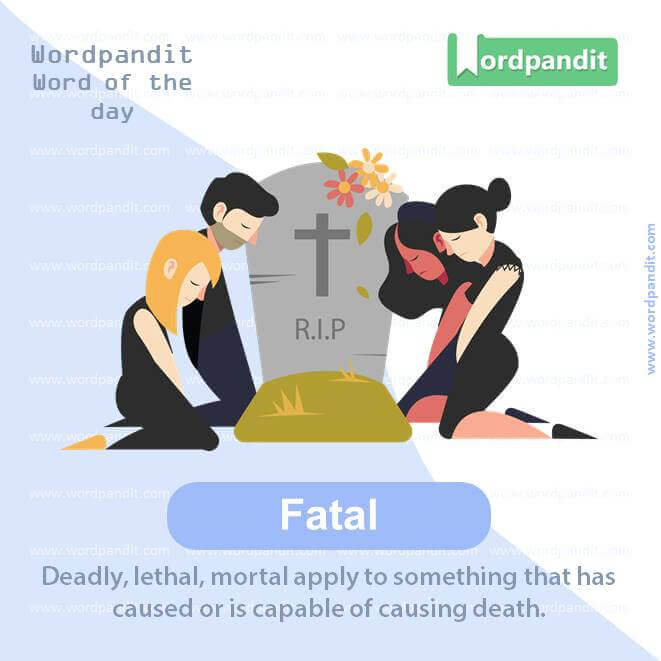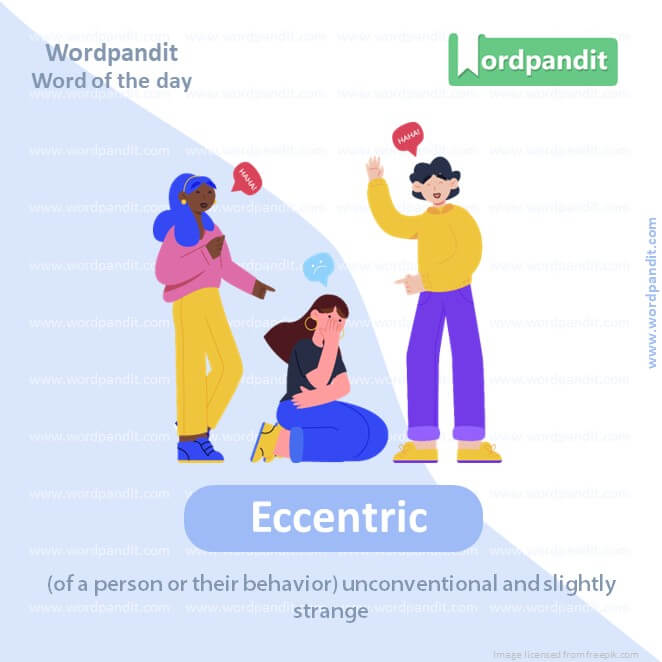Daily Vocabulary Words: List of Daily Used Words in Leading International Newspapers
Hi there. Welcome to this special section @ Wordpandit.
Our endeavour here is very simple: to highlight important daily vocabulary words, which you would come across in leading newspapers in the country. We have included the following newspapers in our selection:
• The New York Times
• The Washington Post
• Scientific American
• BBC
• The Guardian
• Psychology Today
• Wall Street Journal
• The Economist
We are putting in extensive work for developing your vocabulary. All you have got to do is be regular with this section and check out this post on a daily basis. This is your repository of words that are commonly used and essentially, we are posting a list of daily used words. Hence, this has significant practical application as it teaches you words that are used commonly in leading publications mentioned above.
Visit the website daily to learn words from leading international newspapers.

WORD-1: ARBITRARILY
CONTEXT: Critics argue that the new policy arbitrarily targets certain groups, violating their rights to equal treatment.
SOURCE: The New York Times
EXPLANATORY PARAGRAPH: Arbitrarily means doing something without a real reason or a plan. It’s like if you close your eyes and pick a toy from your toy box without peeking. That’s picking a toy arbitrarily.
MEANING: In a random manner; based on personal whims or wishes without any reason or system (Adverb).
PRONUNCIATION: ahr-bi-TRAIR-uh-lee
SYNONYMS: Randomly, Irregularly, Haphazardly, Erratically, Capriciously.
USAGE EXAMPLE:
1. They were arbitrarily switched from one team to another.
2. The prices were arbitrarily set.
3. She arbitrarily changed her mind.
4. These rules cannot be arbitrarily applied.

WORD-2: CONFLAGRATION
CONTEXT: The ongoing political conflagration has caused a deep divide among the nation’s citizens, widening the gap between ideologies.
SOURCE: The Washington Post
EXPLANATORY PARAGRAPH: A conflagration is a big huge fire that is difficult to control. It’s a much bigger and scarier fire than when you roast marshmallows on a campfire.
MEANING: A large and destructive fire that causes a lot of damage (Noun).
PRONUNCIATION: kon-fluh-GRAY-shuhn
SYNONYMS: Inferno, Blaze, Firestorm, Holocaust, Flames.
USAGE EXAMPLE:
1. The forest conflagration lasted for days.
2. A conflagration broke out in the warehouse.
3. The entire town was destroyed by the conflagration.
4. Firefighters were fighting the conflagration all night.
WORD-3: HYSTERIA
CONTEXT: During the early days of the pandemic, media coverage led to widespread hysteria, making it difficult for health information to be accurately communicated to the general public.
SOURCE: Scientific American
EXPLANATORY PARAGRAPH: Hysteria is like when you or your friends get way too excited or scared about something. It can be like if someone sees a tiny spider, but they scream as if it were a giant monster!
MEANING: A state of uncontrolled excitement, anxiety, or panic (Noun).
PRONUNCIATION: hi-STER-ee-uh
SYNONYMS: Panic, Mania, Alarm, Fear, Frenzy.
USAGE EXAMPLE:
1. The news caused a hysteria among the population.
2. Witch trials were fueled by mass hysteria.
3. People often behave irrationally in the grip of hysteria.
4. The sudden outbreak of the deadly virus created hysteria across the city.

WORD-4: CONDEMNATION
CONTEXT: The international community expressed their condemnation of the recent chemical attack on civilians, calling for an immediate investigation.
SOURCE: The Guardian
EXPLANATORY PARAGRAPH: Condemnation is when you say something is really bad or wrong. It’s like when your teacher says that cheating on a test is completely wrong, that’s a condemnation of cheating.
MEANING: To criticize something or someone strongly, usually for moral reasons (Noun).
PRONUNCIATION: kon-dem-NAY-shun
SYNONYMS: Criticism, Censure, Disapproval, Denouncement, Reproof.
USAGE EXAMPLE:
1. The government’s actions have been met with widespread condemnation.
2. The teacher expressed her condemnation of cheating.
3. His condemnation of the incident was recorded.
4. They faced international condemnation for their aggressive behavior.

WORD-5: FATAL
CONTEXT: The unfortunate fatal incident at the construction site raised serious questions about worker safety and company protocol.
SOURCE: The Economist
EXPLANATORY PARAGRAPH: Fatal is a word that adults use when something is so bad that it causes someone to die. Like if a disease is fatal, that means people who get it could die.
MEANING: Deadly, lethal, mortal apply to something that has caused or is capable of causing death (Adjective).
PRONUNCIATION: FAY-tul
SYNONYMS: Deadly, Lethal, Mortal, Death-dealing, Life-threatening.
USAGE EXAMPLE:
1. The accident was fatal to all passengers.
2. The bullet wound proved fatal.
3. Driving under the influence of alcohol can have fatal consequences.
4. The child suffered a fatal injury.

WORD-6: ECCENTRIC
CONTEXT: The eccentric inventor upended conventional thinking with his futuristic designs.
SOURCE: Al Jazeera
EXPLANATORY PARAGRAPH: Eccentric is a word you use for someone who is a little bit different. Maybe they always wear green or they like talking to plants. But remember, being different is a good thing!
MEANING: (of a person or their behavior) unconventional and slightly strange (Adjective).
PRONUNCIATION: ek-SEN-trik
SYNONYMS: Odd, Unusual, Quirky, Outlandish, Weird.
USAGE EXAMPLE:
1. He was considered ECCENTRIC because he wore shorts in winter.
2. Her ECCENTRIC art gained popularity.
3. She was an ECCENTRIC person who lived alone.
4. His ECCENTRIC behavior made him stand out in school.
WORD-7: CONVULSIONS
CONTEXT: The economic convulsions resulting from the market crash led to a sharp rise in unemployment and bankruptcy filings.
SOURCE: BBC
EXPLANATORY PARAGRAPH: Convulsions are when your body shakes in a fast, uncontrollable way. If you’ve ever seen a dog shaking off water after a bath, imagine your whole body doing that but you can’t control it!
MEANING: A sudden, violent irregular movement of the body, caused by involuntary contraction of muscles (Noun).
PRONUNCIATION: kon-VUHL-shuhn
SYNONYMS: Seizure, Fit, Spasm, Tremor, Shaking.
USAGE EXAMPLE:
1. He fell to the floor in CONVULSIONS.
2. High fever may cause CONVULSIONS in young children.
3. The patient was taken to the hospital after a series of CONVULSIONS.
4. Epilepsy often causes sudden CONVULSIONS.
WORD-8: APARTHEID
CONTEXT: His memories of life under apartheid were a moving testament to the indomitable spirit of those who endured such difficult times.
SOURCE: The Guardian
EXPLANATORY PARAGRAPH: Apartheid was a time a long time ago in South Africa when the people who ruled the country made laws saying that people with different color skin had to live in different places and couldn’t do the same things. It was very unfair and wrong.
MEANING: (in South Africa) a policy or system of segregation or discrimination on grounds of race (Noun).
PRONUNCIATION: uh-PART-haid or uh-PAR-tate
SYNONYMS: Racism, Prejudice, Separatism, Discrimination, Bias.
USAGE EXAMPLE:
1. He grew up during the APARTHEID era.
2. The end of APARTHEID was celebrated globally.
3. They fought against APARTHEID and discrimination.
4. Nelson Mandela was a famous anti-APARTHEID activist.
WORD-9: IMPROBABLE
CONTEXT: Despite the improbable odds, the underdog team managed to win the championship, to the delight of their ardent supporters.
SOURCE: The New York Times
EXPLANATORY PARAGRAPH: Improbable is a big word that means something is not likely to happen or be true. Like if you keep your bedroom messy, it’s improbable that you’ll be able to find your favorite toy quickly.
MEANING: Not likely to be true or happen (Adjective).
PRONUNCIATION: im-PROB-uh-buhl
SYNONYMS: Unlikely, Implausible, Unbelievable, Doubtful, Questionable.
USAGE EXAMPLE:
1. He told an IMPROBABLE story of his escape.
2. The thought of winning the lottery seems IMPROBABLE.
3. It seems IMPROBABLE that they will agree.
4. They overcame IMPROBABLE odds to win the game.
WORD-10: CROSSHAIRS
CONTEXT: As the election approached, the candidate found himself in the crosshairs of media scrutiny.
SOURCE: The Economist
EXPLANATORY PARAGRAPH: Crosshairs are like two lines that cross each other in the center. They help people aim when they’re shooting a picture or when people are hunting for animals (which isn’t nice for the animals).
MEANING: A pair of fine lines or fibers that cross at the focal point of a telescope eyepiece, used to pinpoint a target (Noun).
PRONUNCIATION: KROS-hairz
SYNONYMS: Target, Aim, Focus, Bull’s-eye, Focal point.
USAGE EXAMPLE:
1. The target was directly in the CROSSHAIRS of his telescope.
2. He adjusted his aim until the deer was in the CROSSHAIRS of his rifle.
3. The spy found himself in the CROSSHAIRS of law enforcement.
4. Reporters put the politician’s scandal in their CROSSHAIRS.
vocabulary learning techniques
The gift of language lies not just in the syntax or grammar but majorly thrives on a rich repository of words- the vocabulary. Hence, the importance of vocabulary learning techniques is monumental in language acquisition. These techniques act as catalysts, accelerating the process of language learning, and seamlessly integrating new words into our daily discourse.
The first vital point in mastering vocabulary learning techniques is understanding its purpose. These strategies not just help one in memorizing an array of new words, but also assist in using them appropriately in different contexts. It broadens communication skills and creates a roadmap to better expression of thoughts and ideas.
One of the most commonly employed and impactful vocabulary learning techniques is the usage of flashcards. Flashcards offer visual stimulus which aids in imprinting the word and its meaning more effectively in our minds. Regular practice with flashcards helps cultivate language fluency over time.
Another crucial technique is to learn words in context. This simply means learning a word by associating it with a particular sentence, paragraph or story. This context-based approach remarkably boosts our understanding of the nuanced use of vocabulary in varying scenarios.
Moreover, incorporating digital tools or language learning apps can be an effective method in our vocabulary learning techniques kit. These platforms provide interactive learning experiences with gamified vocabulary exercises, making the learning process greatly enjoyable and engaging.
Finally, regular revision is a cornerstone of these vocabulary learning techniques. Repeated revisions ensure that the learned words do not slip away and rather, become firmly anchored in our memory.
Indeed, vocabulary learning techniques are much more than mere memorization strategies. They nurture linguistic competence, expanding expressive capabilities and fostering effective communication. Hence, investing time in understanding and practicing these vocabulary learning techniques can pay rich dividends in enhancing one’s language proficiency.







